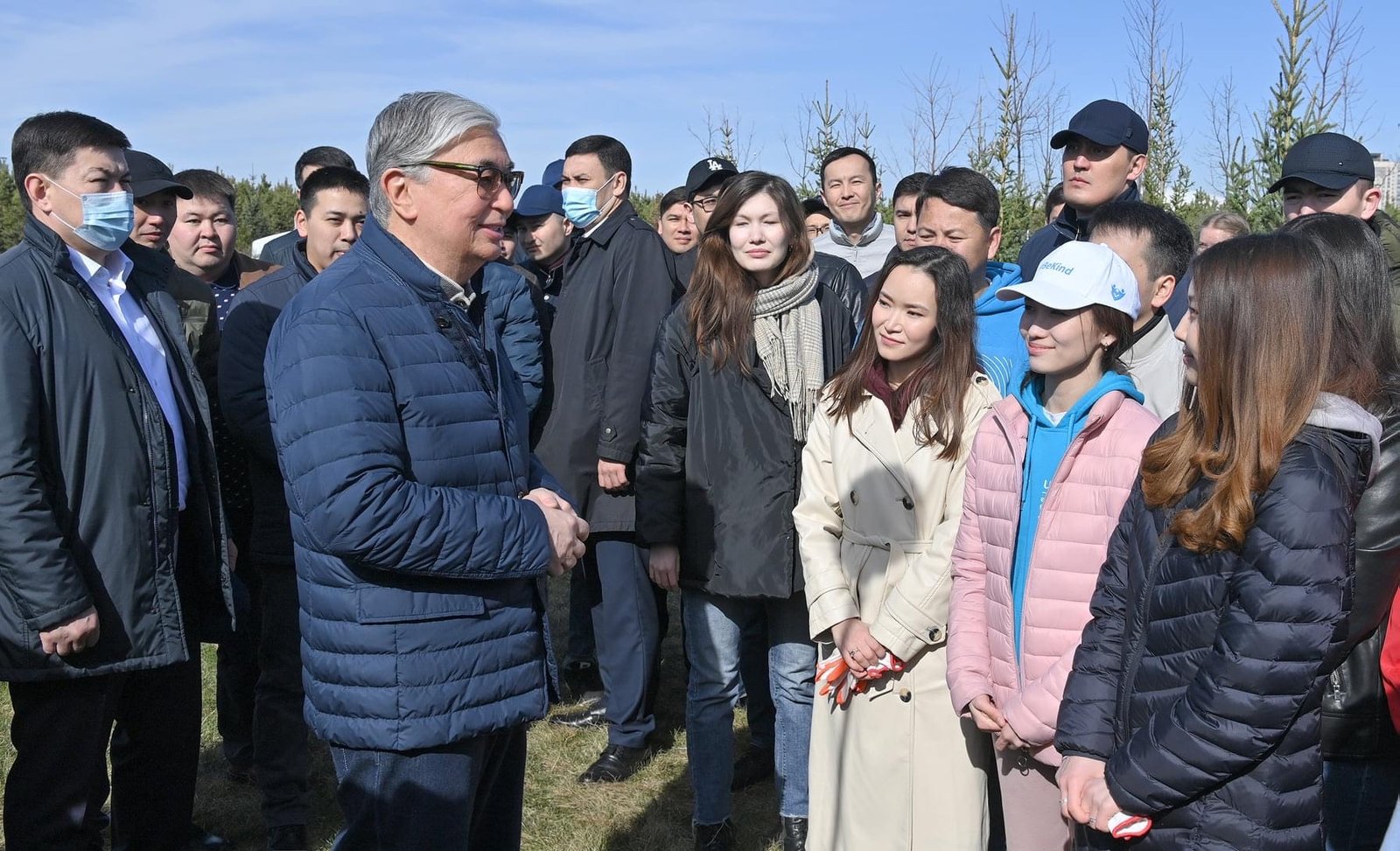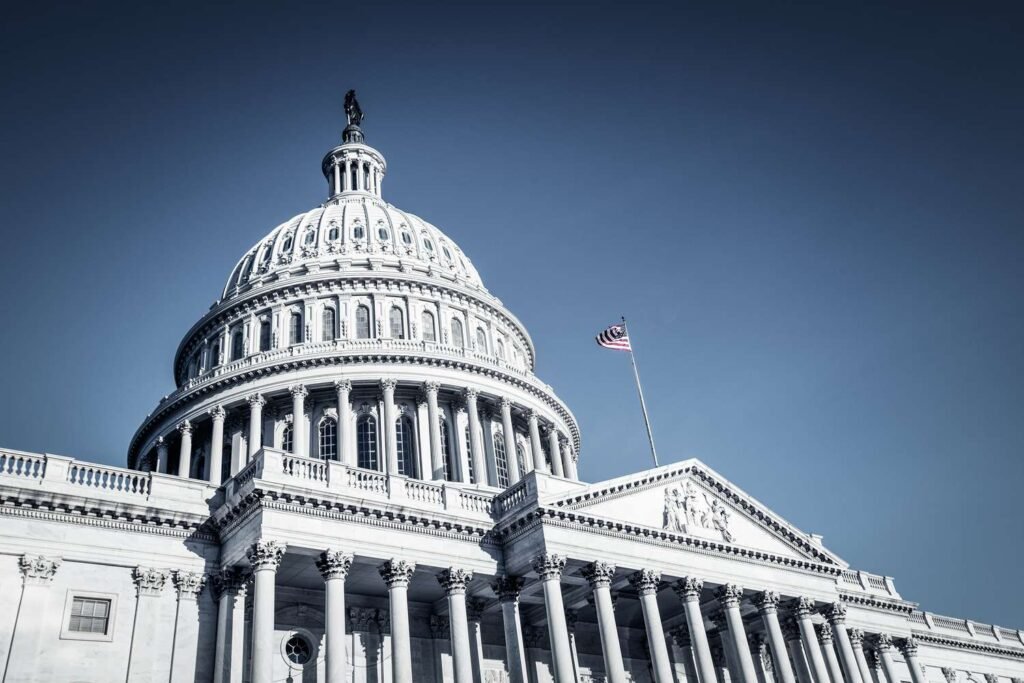For the first time in 32 years of independence, the people of Kazakhstan will vote on March 19 in a mixed elections system of party lists (70% of the Parliament’s seats) and single-member districts (30%). New political parties and fresh faces are campaigning. President Tokayev: “We are building a Modern Fair Kazakhstan with open competition and equal opportunities for everyone”
Astana, 28 February 2023. As the March 19 Parliamentary elections in Kazakhstan become closer, the chances for new political parties and fresh deputies (MPs) to gain seats in the Majilis – the Kazakh Parliament’s lower chamber- are growing. This is no less than a historic change in Central Asia’s largest country, 32 years after declaring independence.
The Majilis elections will take into account, for the first time, last year’s democratic constitutional amendments, which were approved by the Kazakh people in a nationwide referendum (more than 77% voted in favor of the changes, while the turnout was 69%). Due to the newly amended constitution, 29 deputies out of 98 in the Majilis chamber (30% of the Majilis), will be elected directly by the citizens from single-mandated districts.
Kazakhstan’s head of state, President Kassym-Jomart Tokayev, announced the current Majilis elections, at the September 2022 State of the Nation Address. Simultaneously, a series of democratic laws were legislated, following the 5 June 2022 constitutional referendum, aimed at reforming Kazakhstan’s political system by granting more powers to the Mäjilis, reducing Presidential powers, establishing a new Constitutional Supreme Court to defend human rights, removing barriers to the participation of new political parties, and forming a modern mixed majoritarian elections system to the Majilis – based on party lists (70% of the seats) and single-member districts (30%).

“The constitutional reform is a fundamental step in the creation of the New Fair Kazakhstan”, President Tokayev noted in his September 2022 address to the nation. “First and foremost, the state will ensure equality of opportunities and justice for all. Within the framework of political modernization in our country, the development of a strong parliament is central. The amended Constitution sets a whole new democratic standard for a political system with fair and open rules of the game”.
“The registration procedures for political parties have already been greatly simplified”, Tokayev continued. “New mechanisms for forming the parliament and maslikhats (district and municipal elected councils) will be introduced based on party lists and single-member districts. This will increase the number of political parties, strengthen political competition, and contribute to the emergence of a new wave of people’s deputies. We will get a new composition of deputies representing the interests of broad groups of citizens. Conducting large-scale political change with transparency, honesty, and mutual trust is fundamentally important. We are building a Modern, Fair Kazakhstan with open competition and equal opportunities for everyone”.
These sweeping changes across the world’s ninth largest country, sandwiched between Russia (7,400 km land border) and China (1,800 km land border), are already taking shape on the ground. New and existing political parties are refreshing and facelifting their candidate lists. Independent citizens, many of them new and young faces, are submitting nominations to single-mandate districts and preparing for the election campaign in what is already being deemed an unprecedentedly open and competitive political race in Kazakhstan’s history. Hereby are a few examples.
The New Baitak party
The Baitak party was registered in Kazakhstan last November, the first party to be registered in the past two decades, sending a positive signal of the country’s expanding political plurality. The party heads to the elections with a robust environmental green agenda.
At their extraordinary meeting on February 3, the Baitak party approved the list of candidates for the Majilis elections, which includes 20 people. They submitted the documents to the Central Election Commeetty (CEC) on February 6. Speaking at the party’s congress, its chairman and founder, Azamatkhan Amirtai, emphasized that environmental problems in Kazakhstan are worsening, despite the state’s increased attention to them. He underlined the need for stringent measures to reduce greenhouse gas emissions and promote a green economy and financing.

Aq Zhol Democratic Party
At a February 1 congress of the Aq Zhol (“bright path”, in the Kazakh language) party, the members approved 54 people in the list of candidates for Majilis deputies by party lists and 23 on a single-mandate basis. 652 party members were nominated to the maslikhats of all levels.
Presenting the election program at the congress, Azat Peruashev, the party’s chairman, said Aq Zhol stands for strengthening parliamentary institutions: “Democracy rests on the principle of promoting public interests through representative bodies – the Parliament and local maslikhat. Democracy is first and foremost parliamentarism”.
The package of initiatives proposed by the party is designed to develop a real mechanism of checks and balances between the executive and representative branches of power, increase the powers of the Parliament and the maslikhats, promote demonopolization of the political field, create conditions for fair party competition, and ensure the openness of the state budget.
Amanat Ruling Party
The ruling party, Amanat, adopted its final list of candidates at the party’s congress on February 7, which gathered 2,000 people, including members of the party’s political council, former Majilis deputies, delegates from the regions, and members of the Zhastar Rukhy youth wing. “We have transformed the party, abandoning empty promises and slogans. We moved from words to concrete actions in the political field and the issues that concern people the most,” said Amanat party chair and the previous Majilis Speaker, Yerlan Koshanov.
The party nominated 3,821 candidates for the maslikhats of all levels and 119 candidates for the Majilis, including 90 based on the party list. Koshanov said the list includes “representatives of all regions and branches. They are true statesmen and patriots of our homeland”. In the 2021 Majilis elections, the Amanat party, under its former Nur Otan name, won the majority of the votes, 71% (5,148,074 votes).
Auyl People’s Democratic Patriotic Party
The Auyl party submitted its list of candidates, which includes 25 people, on February 8. Among them are two former presidential candidates, Karakat Abden and Zhiguli Dairabayev. The party said the list ensures equal representation of women, youth, and people with disabilities, who account for 36% of the candidates. “The average age of the candidates is 43 years, and the youngest is 25 years old,” said the party in a statement.
Speaking about the agenda at the party’s congress on February 4, Auyl Party Chairman, Ali Bektayev, said the party represents the interests of rural residents and villages. “We represent the interests of the village, the interests of at least half the country’s population,” said Bektayev, emphasizing the development of agricultural and agro-industrial complex as their priority. The Congress also nominated nine candidates in single-mandate constituencies.
National Social Democratic Party
The National Social Democratic Party submitted its documents to CEC on February 6, after the party approved a list of 19 candidates for the Mazhilis elections by party list. Six candidates were nominated in single-mandate constituencies. The chairman, Askhat Rakhimzhanov, said the reforms mark a “responsible milestone” in the country’s history, and the party cannot stay on the sidelines.
“The accumulated problems in the economy, social policy, and other important spheres of the state significantly hamper political transformation. These problems need to be solved as soon as possible. Nurlan Auesbayev, a party member, who will also seek a Mazhilis seat based on the party lists, ran for president last November, winning 2.22% of the vote.
People’s Party of Kazakhstan
The People’s Party of Kazakhstan nominated 52 members in its party lists, which it had submitted to the CEC on February 1. “Originally, the list had more than 120 people. We decided to shorten the list considering the actual distribution of seats,” said party chairman, Yermukhamet Yertysbayev. He expects the party to win 40-45 seats in the parliament, stressing that “we have representatives of different ethnic groups and social strata in our ranks – men, women and young people – entrepreneurs and state employees, mothers with many children and civil activists.”
The average age of the candidates is 50 years old. More than 32% of the candidates are women, young people, and people with disabilities. According to the party’s press service, nearly 600 candidates were nominated for the maslikhats, and 40% are in single-mandate districts.
The New Respublica party
The Respublica party is the youngest party in Kazakhstan, receiving its official registration on January 18, this year. The party, founded by Kazakh entrepreneurs and public figures, nominated 25 candidates for the Majilis elections by party lists and four in single-mandate districts. The list of candidates was endorsed by party members during their congress on February 6 in Astana, which gathered heads of the party’s 20 branches and more than 200 delegates from all over the country.
Olzhas Kuspekov, head of the party’s electoral headquarters: “There are 17 men and eight women. The average age of candidates for the Majilis is 38 years old. The youngest among the candidates is 25 years old, and the oldest is 51. Four people were nominated in single-mandate districts”.
Aidarbek Khojanazarov, the party’s chairperson, concluded: “We want to reform the agricultural development program. Not by subsidies, but by fundamental changes to rehabilitate the whole industry. We need a food security doctrine in the villages, as well as good education, internet infrastructure, and water quality,” “We are ready to offer a strategic vision and a solution to the accumulated problems in each industry.”







